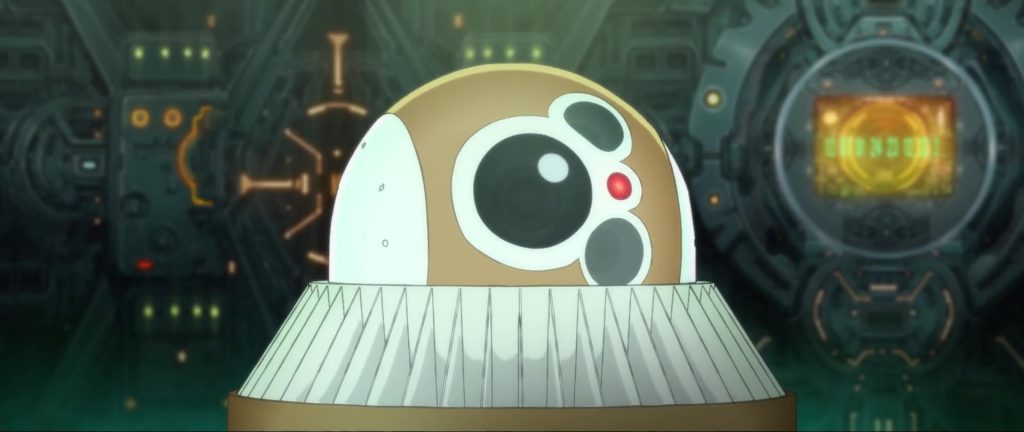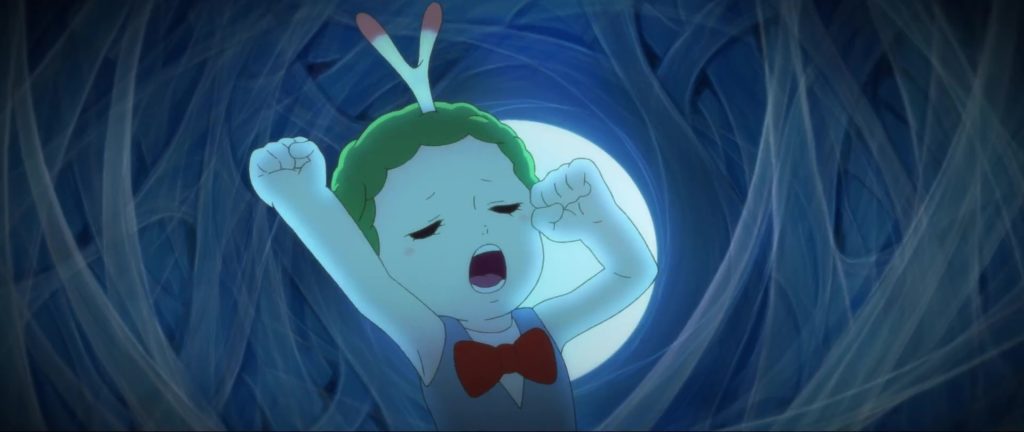
[ad_1]
October 2, 2023
·
0 comments
By Jonathan Clements.

On a distant, desiccated planet wistfully named Eden, colonists George (Yosuke Kubozuka) and Romi (Rie Miyazawa) play at being Adam and Eve. They have a long road ahead of them if they are to ever terraform the planet and make it truly habitable for human life. For now, they are obliged to dwell aboard a ship that is kitted out like a movie set, eating their meagre meals in a corner designed to recall the roadside diners of the lost Earth.
Although the manga creator Osamu Tezuka is best remembered for Astro Boy, and is celebrated at this festival for his early Metropolis, his true life’s work was the sprawling and unfinished Phoenix saga. Spanning twelve volumes by the time of his death, it featured a series of individual stories, united behind the scenes by the realisation that many of the characters shown were ancestors, reincarnations or inadvertent influencers of characters in other stories – much as David Mitchell’s later and similarly Buddhist-influenced Cloud Atlas would feature a number of separate stories that were more than the sum of their parts. The stories that comprised Phoenix could all be read as separate standalones, but a reading of the entire series brought new connections and understandings.

It would have been enough for Tezuka to keep to historical time, with the characters appearing variously in Japan’s legend-soaked Dark Ages and medieval samurai wars. Tezuka, however, dragged several instalments far into the future, investing his epic work with considerations not only of humanity’s karmic interconnections, but of the potential disruptions to Buddhist ethics looming in a future of artificial intelligences, the colonisation of other worlds, and the prospect of immortality, a development that threatened to ruin the cycle of death and rebirth.
The original manga appearance of this particular instalment, “Nostalgia” was in 1971, when Tezuka was in the midst of fervid legal actions and financial shenanigans over his troubled animation studio Mushi Production. The story featured cameo appearances from characters that had previously starred in other future-set Phoenix episodes, including Makimura (played here by Shintaro Asanuma) who was seen duelling for the affections of a lady astronaut in “Universe” (1969), the female android Chihiro (Saki Kobari) who became a leading man’s love interest in “Resurrection” (1970), and the shape-shifting Moopie aliens that first showed up in “Future” (1967). The anime production continues in a Tezuka style by also packing in cameos behind the scenes – not merely the big-name actors such as Kubozuka and Miyazawa in the leading roles, and Issey Ogata as the mad professor Zudarban, but in walk-on roles, such as the military tribunal voiced by the members of the City Boys comedy troupe.

Scriptwriters Katsunari Mano and the suspiciously pseudonymous Saki Konohana (“This flower blooms”) artfully turn Tezuka’s original plot into a space colonisation narrative redolent of the more recent Raised by Wolves. They are not the first colonists on Eden, and as they struggle to grow crops and find water, we discover along with them the sad fate of their predecessors. The story veritably leaps along, with telltale signs in the background and in personal grooming making it clear that weeks, if not months elapse between shots. Before long, as the film enters its second act, the jumps in the narrative become even more pronounced. A recurring theme is the thwarting of human ambitions, as repeatedly the cast is confronted by obstacles that shatter their hopes. George and Romi hope for an easy life in their new home; their son Cain (Ryohei Kimura) expects to return to Earth imminently…

Director Shojiro Nishimi, a former lead animator on Mind Game and Tekkonkinkreet, runs with the themes of the original in framing his human cast as mere dots at the bottom of the frame, dwarfed by the space and time that have existed long before and will exist long after them. A year passes in the film’s first ten minutes, and we are soon rattling along – the minutiae of a human life relegated to the cutting room floor, as the story to be told scales ever bigger and bigger. On occasion this can backfire – it doesn’t seem all that strange if Eden experiences an earthquake once every eight or nine years, but the compression of the story delivers two plot-pivoting disasters in just a few minutes. Similarly, some of the cast’s decisions and actions, divorced from the years of torment and anguish that might inform them, can seem a little crazy. But that, too, is a feature of viewing the world from the deep-time perspective of the titular phoenix, with the dramas of a human life rendered miniscule in the great scheme of things. All that’s left, as the English-language closing theme sung by the boys’ choir Libera points out, are “the ties that bind”. The recurring theme of humans rendered insignificant by the vastness of time and space are carried along in much the same style as the audience-dividing festival film Children of the Sea, with which Phoenix shares a character designer and art director.
Phoenix has been adapted for the screen on multiple occasions, and in this case the story of “Nostalgia” is appearing twice in the same year, once in this movie from Studio 4°C, and also as Eden17, in serial form packaged for the streamer Disney Plus. The ending for the cinema version is very different from the one seen on television.
Jonathan Clements is the author of Anime: A History. Phoenix: Reminiscence of Flower is screening in competition at this year’s Scotland Loves Anime.
[ad_2]





